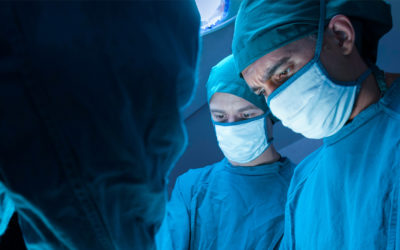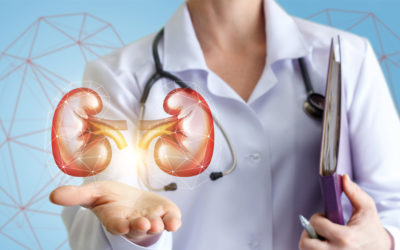Gastrectomy
The stomach aids in digestion by taking food from the esophagus and storing it while specialized cells secrete chemicals to breakdown food. The stomach’s muscles then propel the food further into the digestive tract. Conditions such as cancer, pre-cancerous lesions, or benign conditions such as painful or bleeding ulcers, can cause the need for portions of the stomach to be surgically removed.
The procedures, called gastrectomies, are traditionally performed with a single, large incision over the abdomen, allowing surgeons to put their hands inside the patient’s abdomen and perform the operation. Laprascopic surgery and robotic-assisted laparascopic surgery are now being used to perform gastrectomies with multiple, small incisions and narrow instruments.
For More Information
Call 847-360-3000
Related Services and Conditions
Vista Weight Loss
Robotic Surgery
Medical technology has come a long way—so far that we may now use robotic “hands” to assist surgeons during complex and delicate procedures. Robotic surgery includes three arms that allow the surgeon to hold and manipulate high-precision instruments, plus one more arm...
Cholecystectomy
The gallbladder acts as a storage unit for a bile- a liquid that aids our bodies in digesting food as it enters the intestine. In most cases, gallbladder dysfunctions require surgical treatment and/or removal. The surgical removal of the gallbladder is typically...
Colectomy
The colon and rectum aid in digestion by removing salt, water and other nutrients from digested food and produce and store stool. Digestive conditions including colon cancer, diverticular disease, inflammatory bowel disease (ulcerative colitis, Crohn's disease) and...
Gastric Bypass
Gastric bypass is the most commonly performed surgical weight loss procedure. Gastric bypass can also be performed for other conditions, including diabetes. This procedure is traditionally performed with a single, large incision over the abdomen, allowing surgeons to...
Gynecology Robotic Surgery
Women have special needs when it comes to gynecological surgery. The reproductive system includes many delicate organs that can affect hormones, fertility and other body systems. Many gynecological issues, like problems with your period, can be addressed with...
Hiatal/Paraesophageal Hernia Repair
A paraesophageal hernia is a specific type of hiatal hernia- a hole between the abdominal cavity and chest cavity that allows a portion of the stomach or other portions of the intestine to move into the chest and become trapped. Paraesophageal and hiatal hernias can...
Partial Nephrectomy
A partial nephrectomy procedure requires the removal of a section of the kidney by targeting cancerous cells while preserving the rest of the organ. Robotic surgery can be used to save kidney function and cause less scarring, reduce blood loss and shorten recovery...








